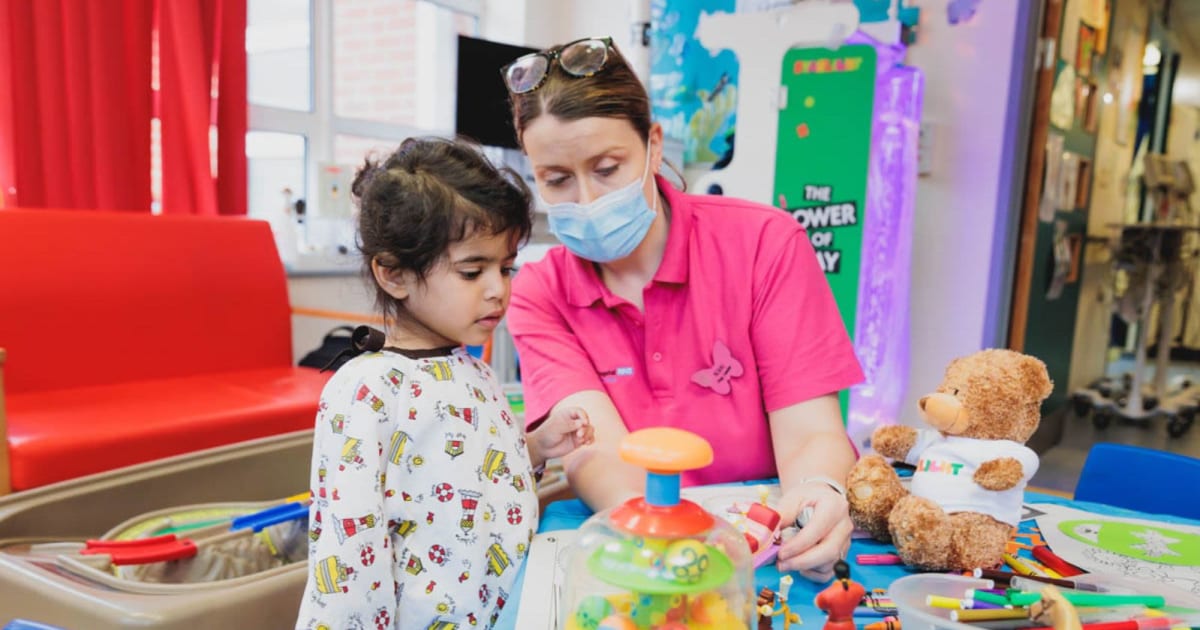There has been a long-term upward trend in demand for children’s services in NHS hospitals. Between 2007 and 2017, there was a 52% increase in outpatient visits for children under 14. Emergency admissions for under-18s totalled 560,000 in 2020/21, and more than half of those were children aged four and under.
Hospitals are struggling to cope with this demand, particularly in the aftermath of the Covid pandemic. The average paediatrics waiting time was 18.8 weeks as of November 2022, a 32% increase on the year before.
In these challenging circumstances, it is unsurprising that just four in every 10 children treated in hospital report that healthcare staff engaged them in play or distraction techniques. And yet, this may be a false economy; play in healthcare has been found to have a significant impact on the experience of treatment, while also reducing treatment times and costs for healthcare settings.
However, there are efforts underway to change this. The charity Starlight has a mission Through their work, Starlight aims to help improve children’s wellbeing during treatment and beyond, in turn providing efficiencies and cost savings to the NHS. They advocate for better access to play services in healthcare settings and promote the full recognition of health play practitioners as an integral component of the children’s health workforce. Additionally, they fund health play specialists, and provide training, toys and activities to aid healthcare professionals in healthcare settings, who can in turn use these materials to improve a child’s engagement with treatment and their overall hospital experience. The impact of their Distraction and Boost Boxes – each filled with bespoke and curated toys, games and puzzles for children to use in healthcare settings – are the main focus of this report.
This evaluation suggested Starlight’s resources for play could deliver value for money for hospitals and allow for the reallocation of healthcare staff time:
It is important to recognise that these estimates were based on recollections of a relatively limited sample of healthcare professionals and are subject to significant uncertainty.
Pro Bono Economics’ analysis suggested that Starlight’s work could reduce treatment times and need for sedation, and therefore generate net economic benefits to the NHS. To strengthen evidence of their Distraction and Boost Box services’ impact in future, thereby allowing a more confident conclusion, it is advised that Starlight consider the following:
